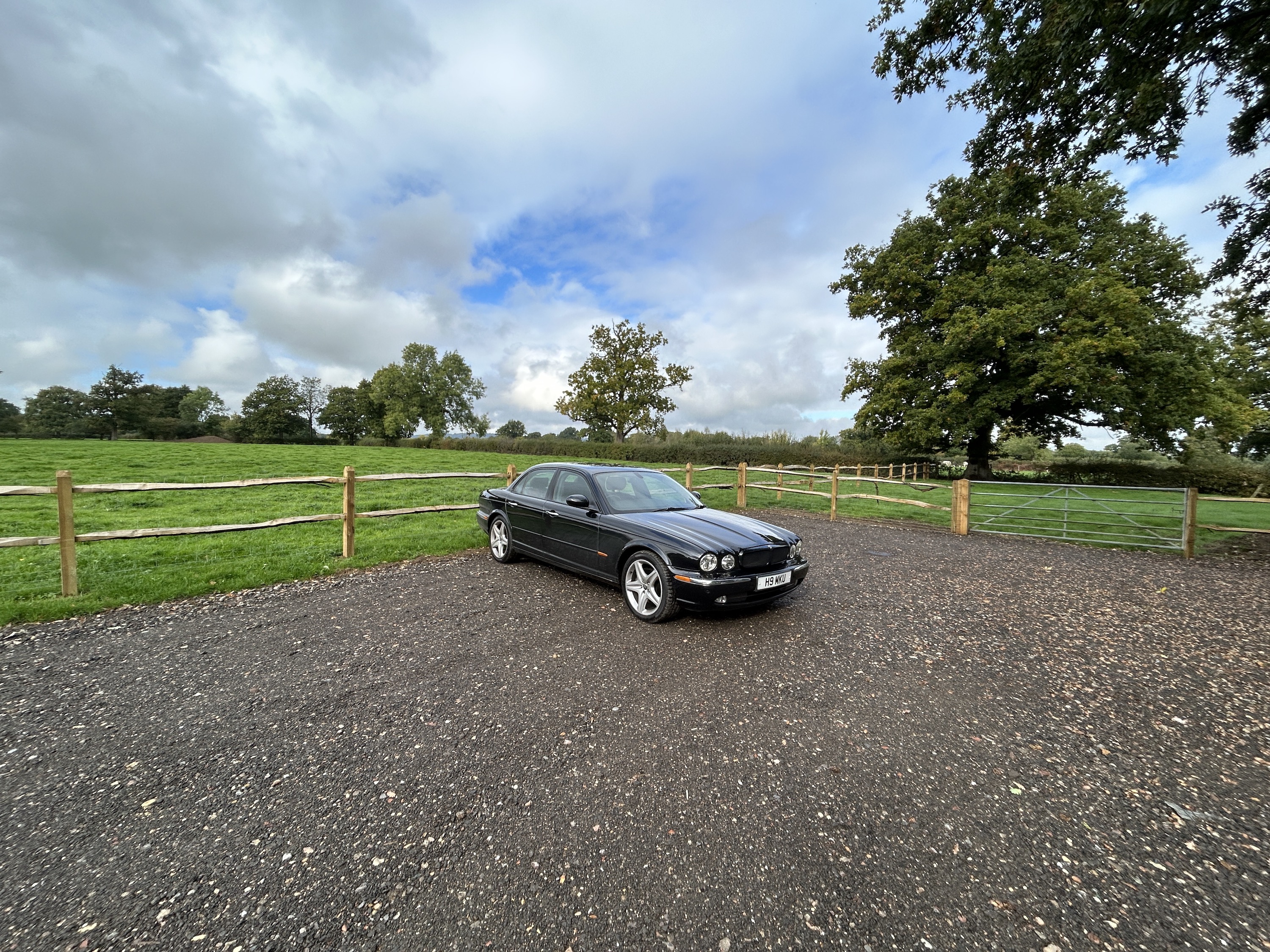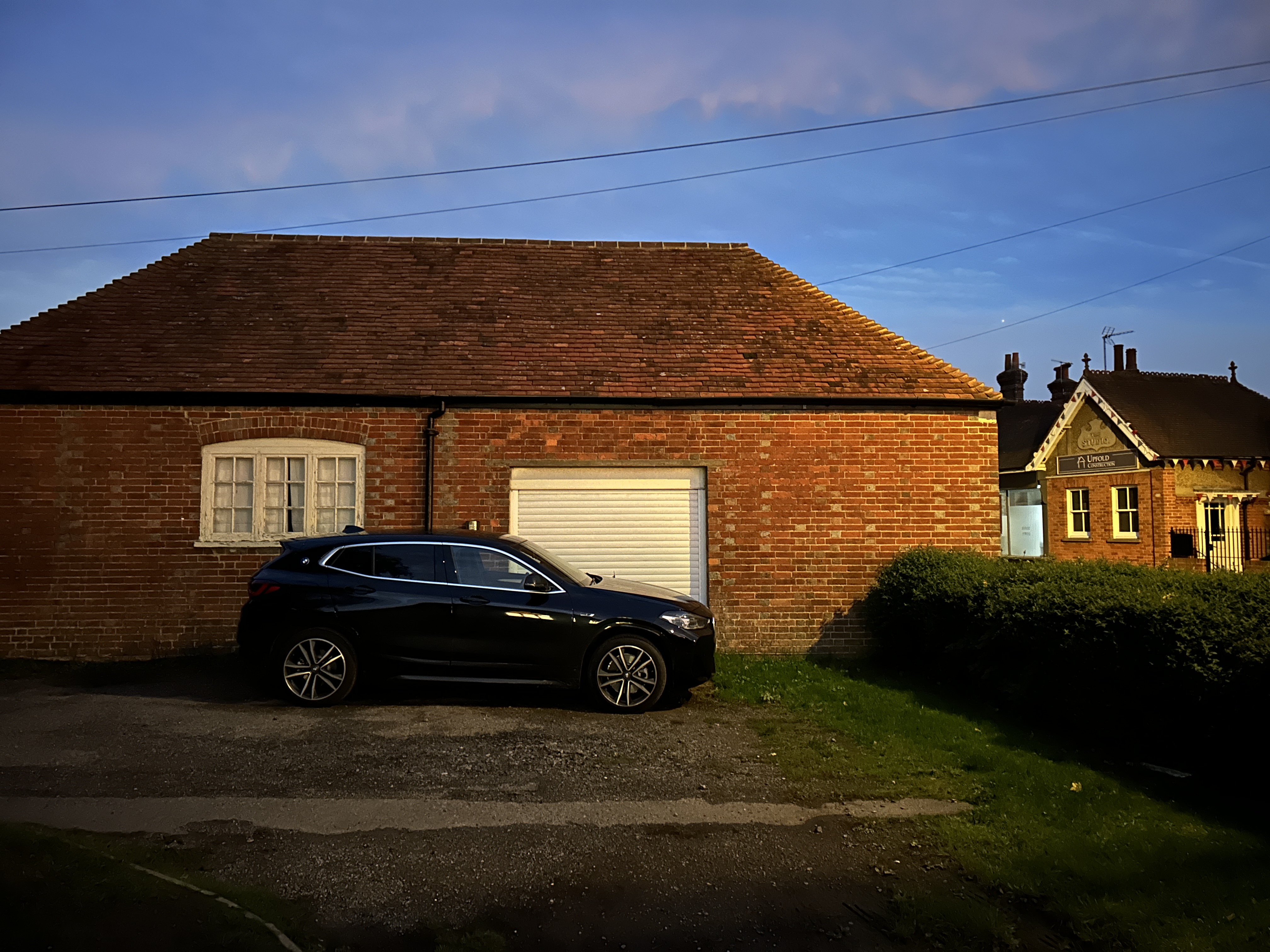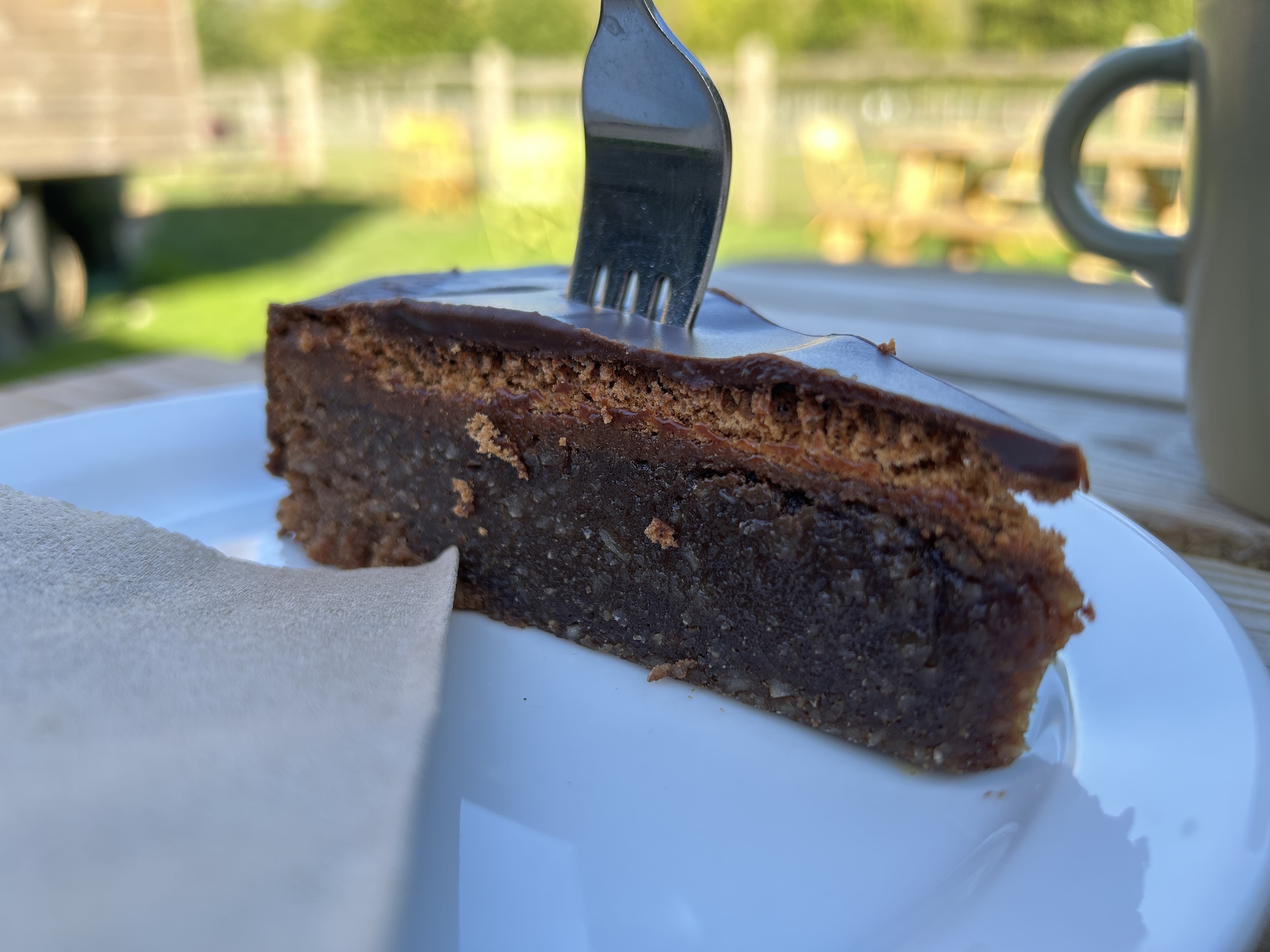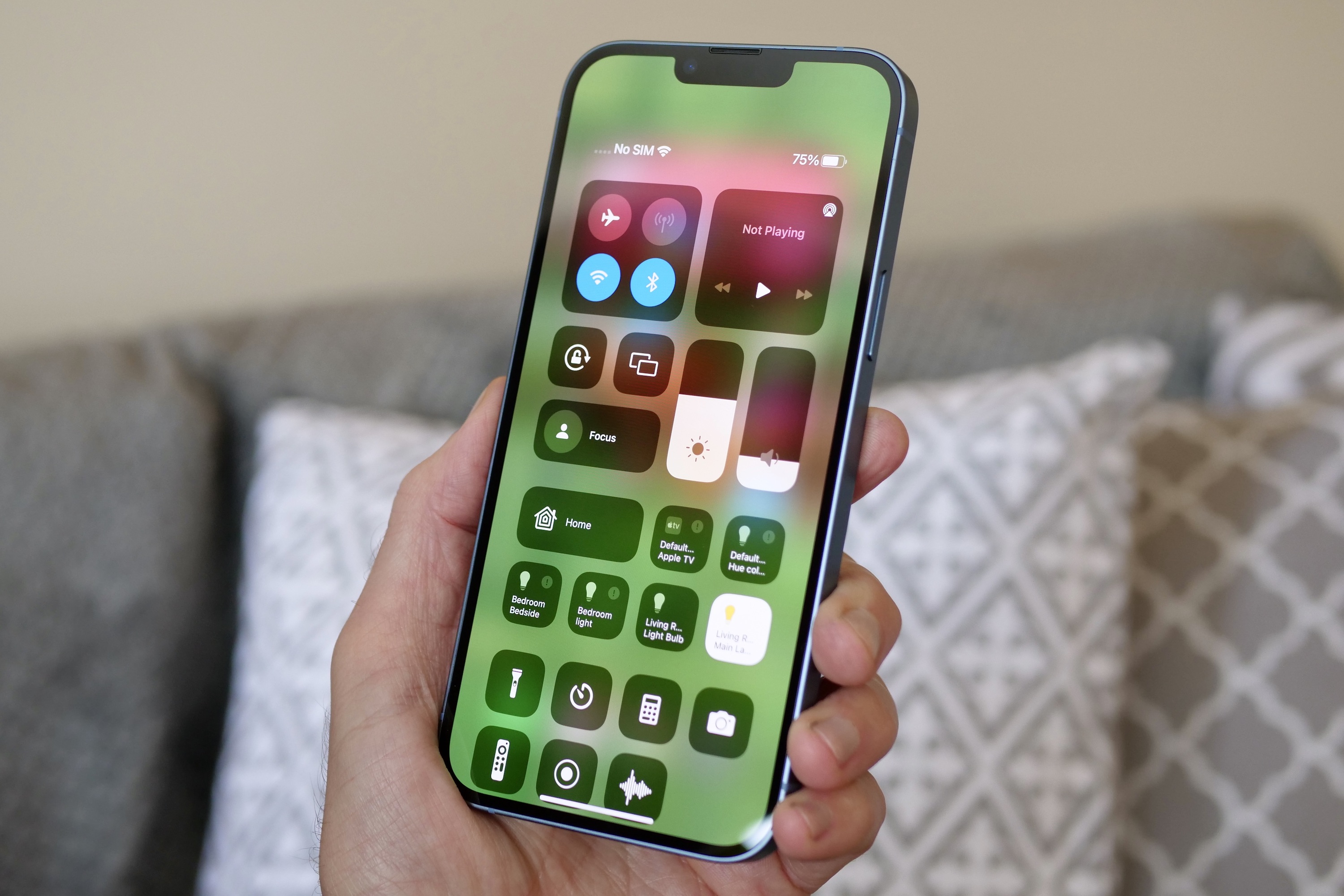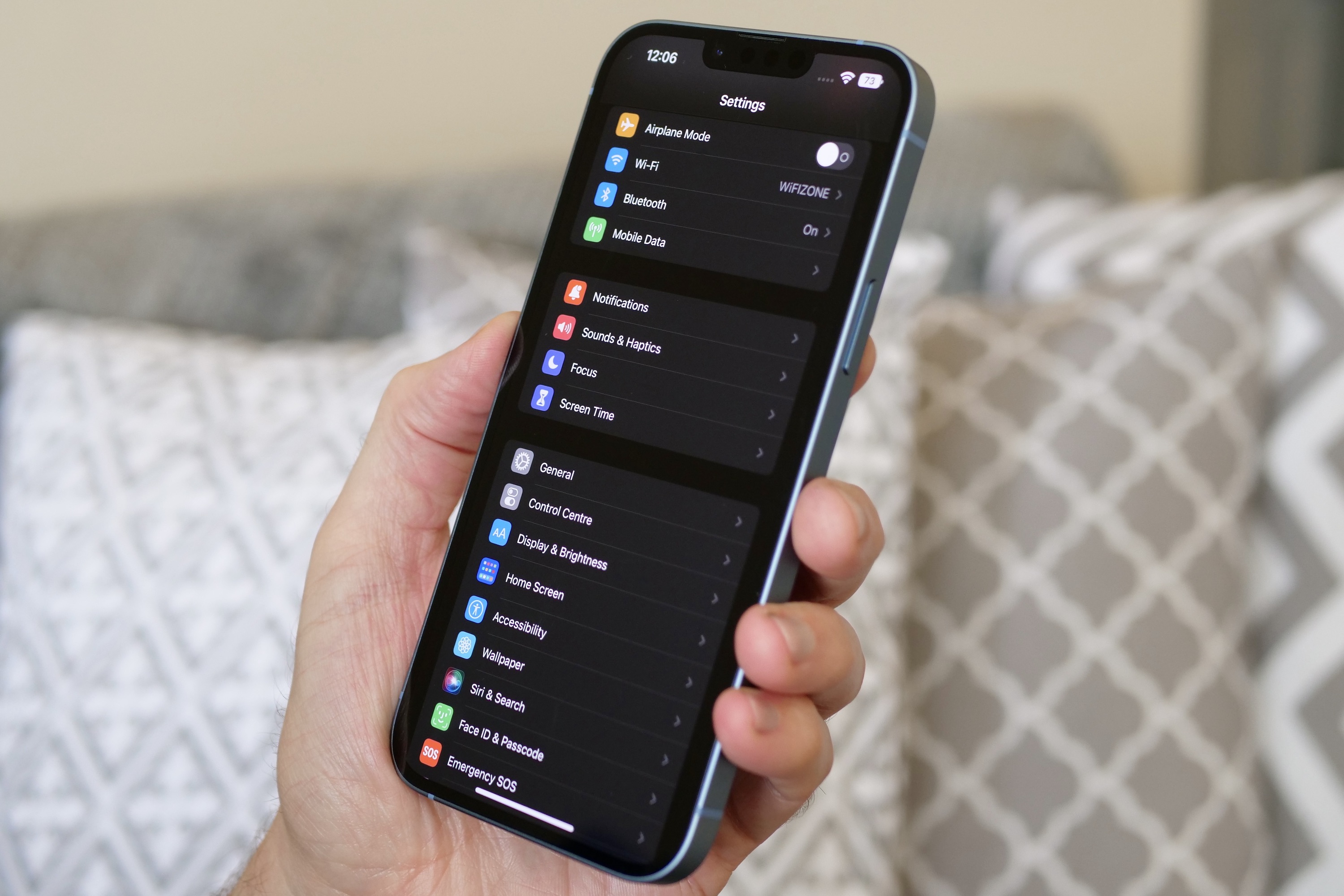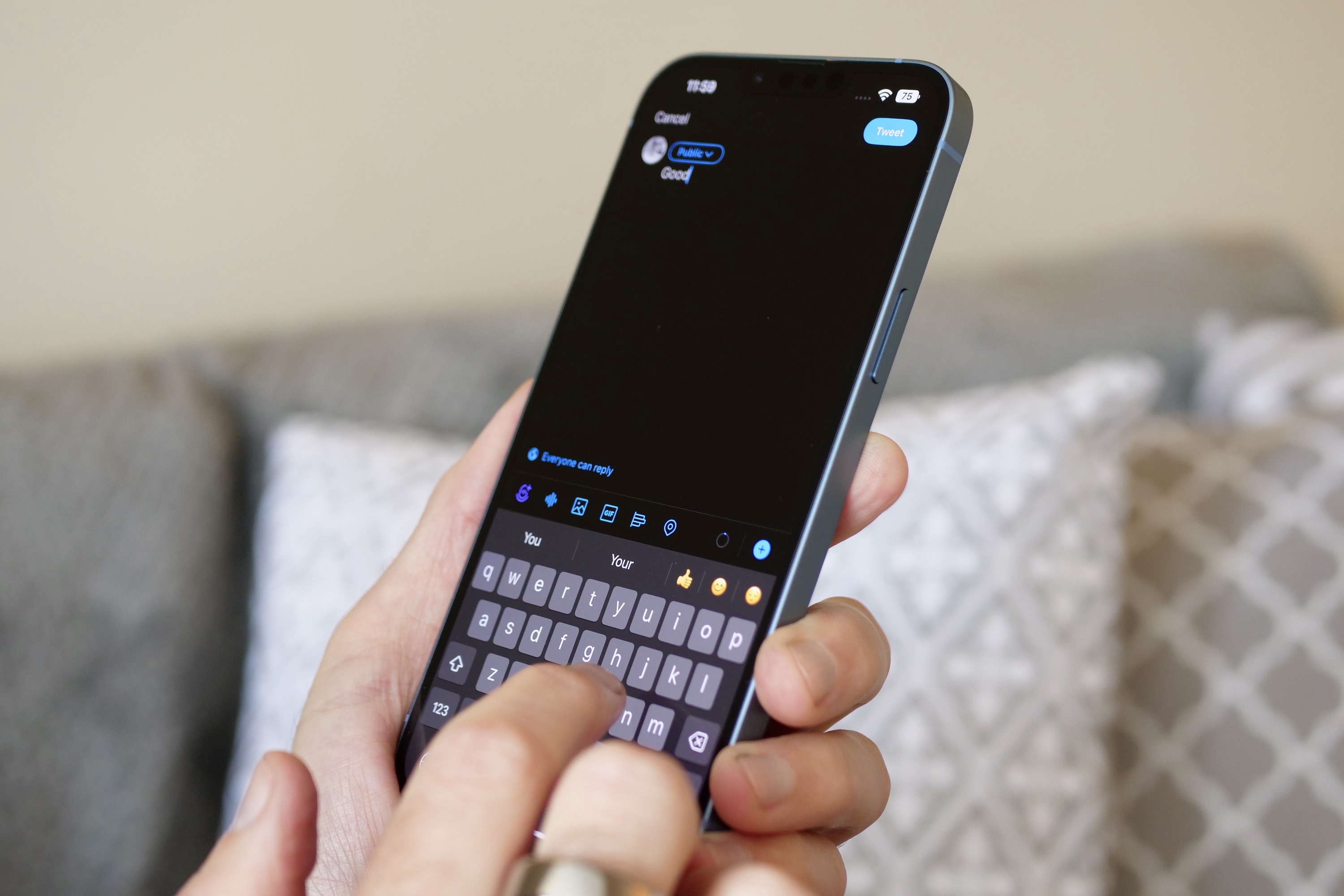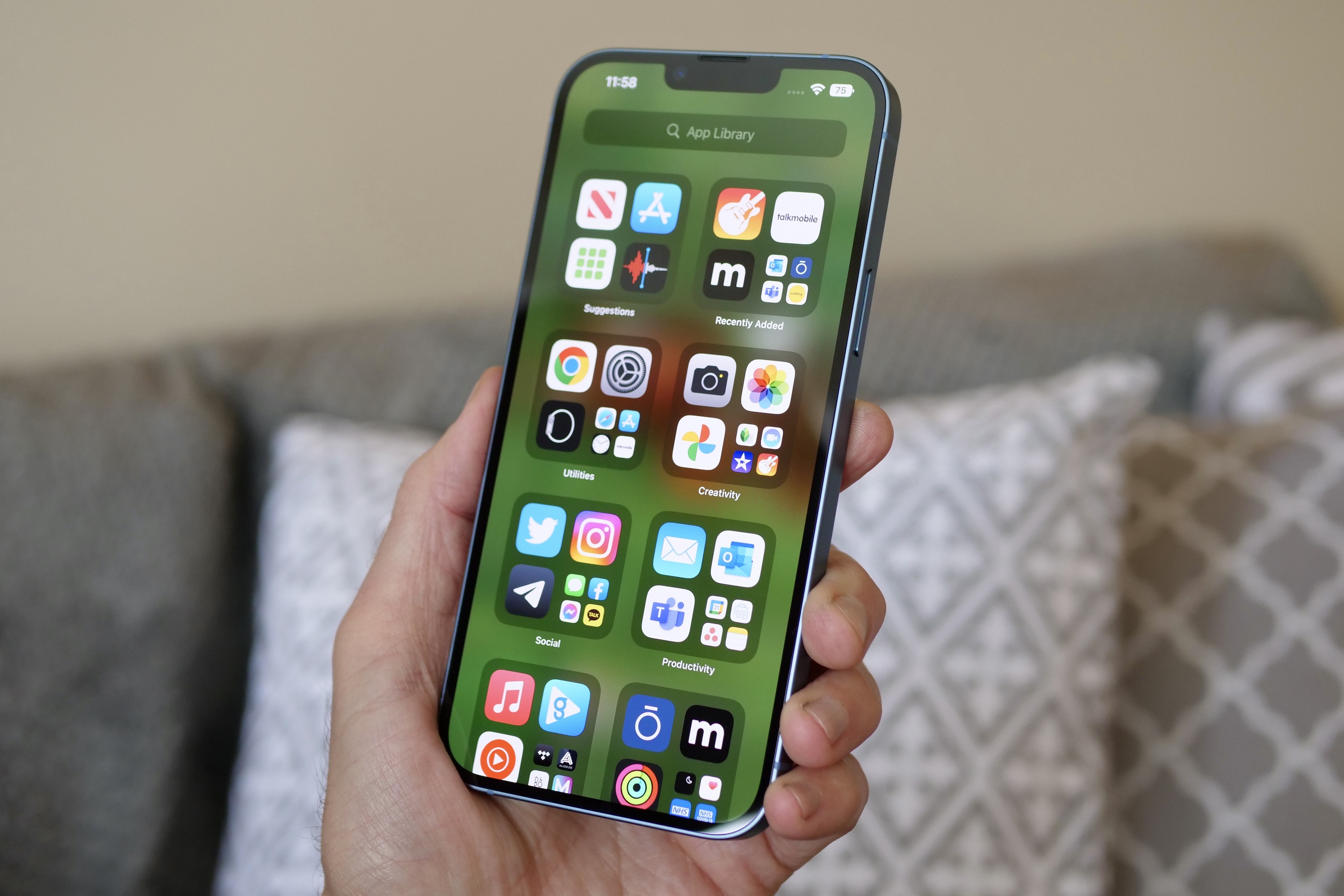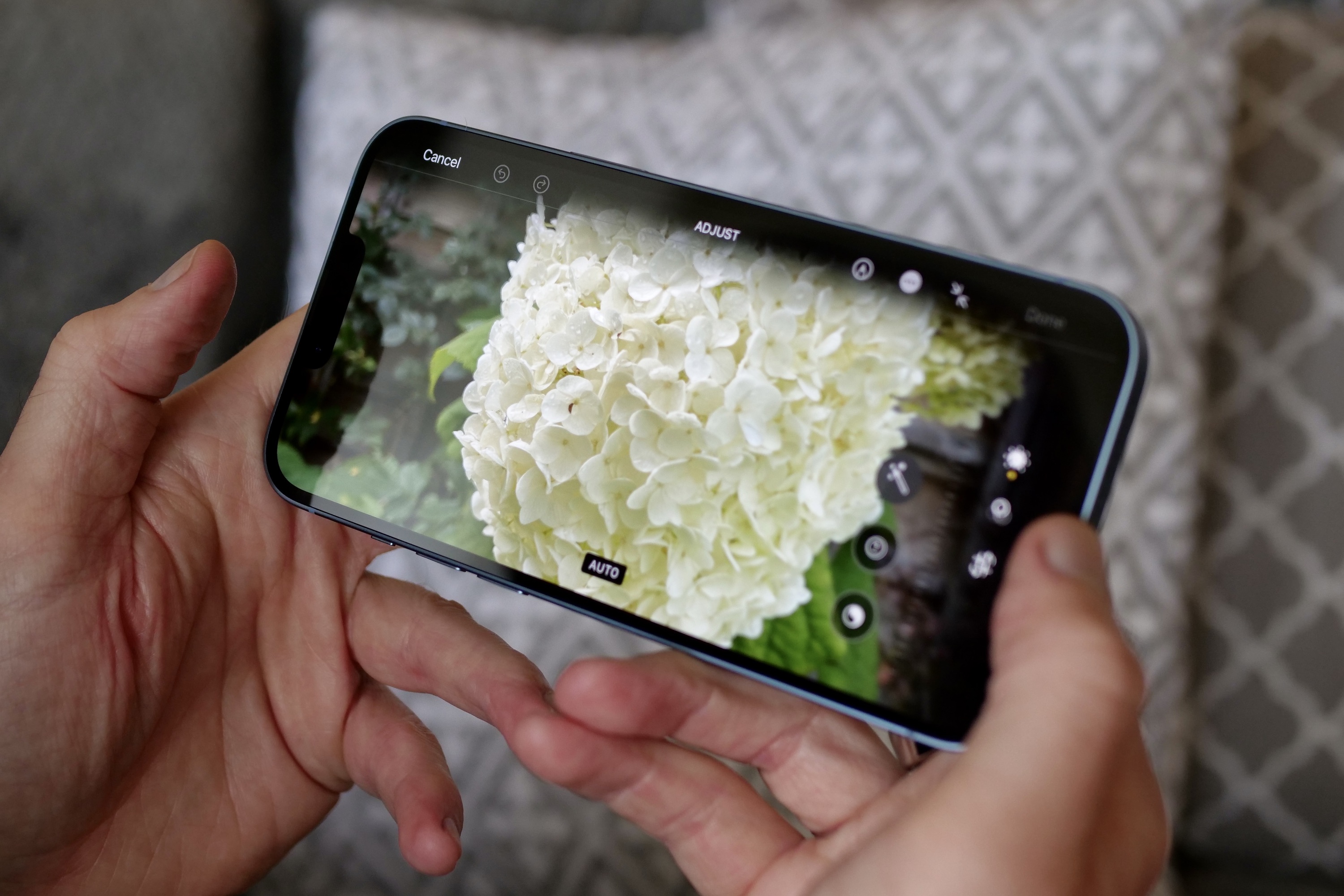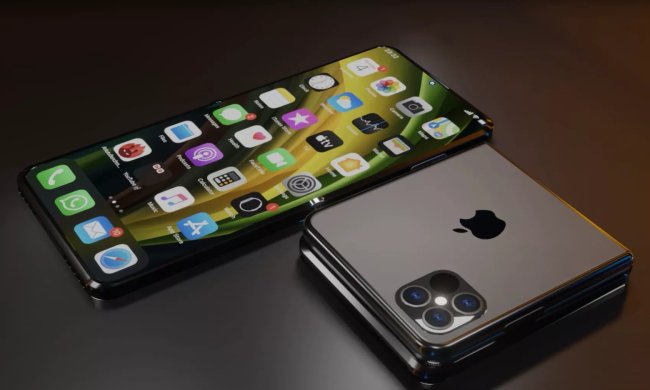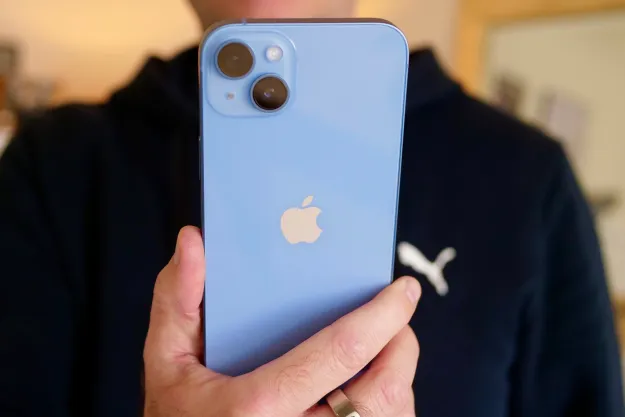
“The big screen and two-day battery life make the excellent iPhone 14 Plus tempting, but it's not compelling enough to withstand the challenge from the superior iPhone 14 Pro, or the bargain nature of the iPhone 14.”
- Large, vibrant, detailed screen
- Two-day battery life
- Easy to use software
- Great everyday camera
- It's a big phone
- 60Hz refresh rate
Apple hadn’t used the Plus name since 2017, but it resurrected it in 2022 with the iPhone 14 Plus. Just like before, the new model increases the screen size of the standard one, but keeps the majority of the other technical features in place. It fits in that awkward space between the cheaper iPhone 14 and the slightly more expensive, but superior Pro model. But is there any real reason to buy it?
- iPhone 14 Plus design
- iPhone 14 Plus screen
- iPhone 14 Plus camera
- iPhone 14 Plus software and performance
- All the meaningful extras you get with the iPhone 14 Plus
- iPhone 14 Plus battery and charging
- Coming back to the iPhone 14 Plus after 2 months
- iPhone 14 Plus price and availability
- Only one compelling reason to buy the Plus version
iPhone 14 Plus design
The iPhone 14 Plus is wider, taller, and heavier than the iPhone 14, and the only dimension that stays the same is the thickness at 7.8mm. Made from aluminum and glass, it’s a step down in luxury from the stainless steel and glass Pro models, but with this comes the advantage of low weight. At 203 grams, the iPhone 14 Plus can’t be called light, but it’s lighter than the iPhone 14 Pro and only a few grams heavier than the Samsung Galaxy S22+.
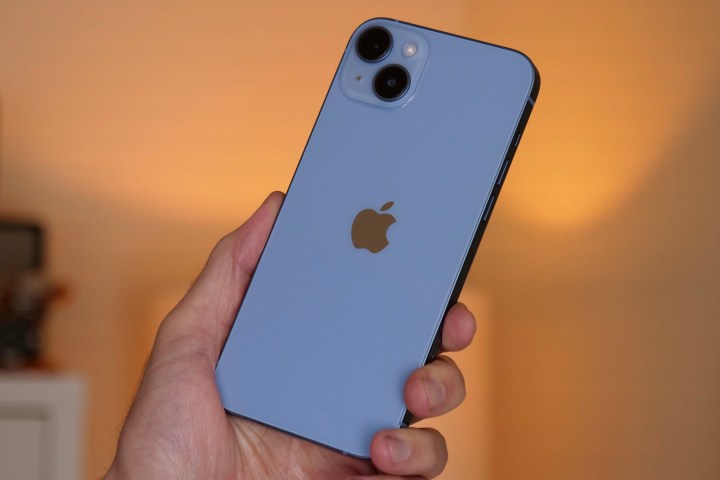
My usual iPhone of choice is the iPhone 14 Pro, and I’ve been consistently surprised at how light the iPhone 14 Plus feels when I pick it up, despite the larger screen and body, as well as the scant 3-gram real-world difference between them. The aluminum chassis is cool to the touch and matches the color of the rear glass, and it’s the new-for-2022 blue color you see in our photos. It also comes in Midnight, Purple, Starlight, and the special (Product) Red shade.
I considered buying the iPhone 14 Pro Max this year, but in the end decided against it, and using the iPhone 14 Plus has been a reminder of what I’m missing. It’s both good and bad. There’s no doubt that the large screen is stunning, makes reading more comfortable for longer, and is really great for games — but the overall size is a downside. The iPhone 14 Plus is a big phone. It stretches out my pocket, I can’t easily use it with one hand, and I find I juggle it more than the smaller iPhone 14-sized Pro, all because the shape of the phone isn’t especially pleasing to hold.

The flat sides aren’t the most ergonomic choice for a smartphone, despite looking superb, and the iPhone 14 Plus is quite slippery. I grip it more because it doesn’t always feel secure in my hand, at which point it rapidly starts to get fatiguing because it’s quite sharp. It’s difficult to find a happy medium with the bigger phone. Only you can decide if the trade-off of having the bigger screen is worth the downside of a heavier, more cumbersome body.
I still can’t decide, and that’s not a good thing. Using the iPhone 14 Plus hasn’t made me desperate to return to the iPhone 14 Pro, but it also hasn’t made me desperate not to. The 6.1-inch iPhone 14 really does feel like the sweet spot, and the pull of the 6.7-inch iPhone 14 Plus isn’t quite enough to convince me it’s worth the extra money. It’s still a beautifully designed, superbly made, and highly desirable smartphone though. I also love the bright colors available for the 14 and 14 Plus, and would have preferred to see more of these options for the Pro line too.
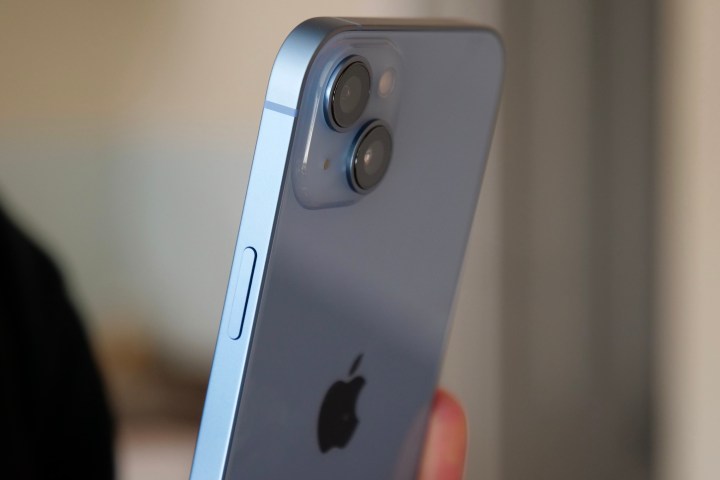
The iPhone 14 Plus has an IP68 water-resistance rating, the aluminum body should be hardwearing, and the Ceramic Shield glass over the screen certainly seems to hold up over time. However, the glass rear panel is more of a durability concern. Putting it in a case is a good way of protecting your investment, and lucky for you, there’s already a large selection of iPhone 14 Plus cases.
iPhone 14 Plus screen
The reason the iPhone 14 Plus exists is to give people who don’t want to pay for the iPhone 14 Pro Max the chance to still get an iPhone with a big screen. It’s a 6.7-inch Super Retina XDR OLED screen with a 2778 x 1284 pixel resolution, HDR support, Apple’s True Tone feature, and a notch at the top. If you’re looking for a phone with Apple’s new Dynamic Island, it’s only available on the iPhone 14 Pro and 14 Pro Max.
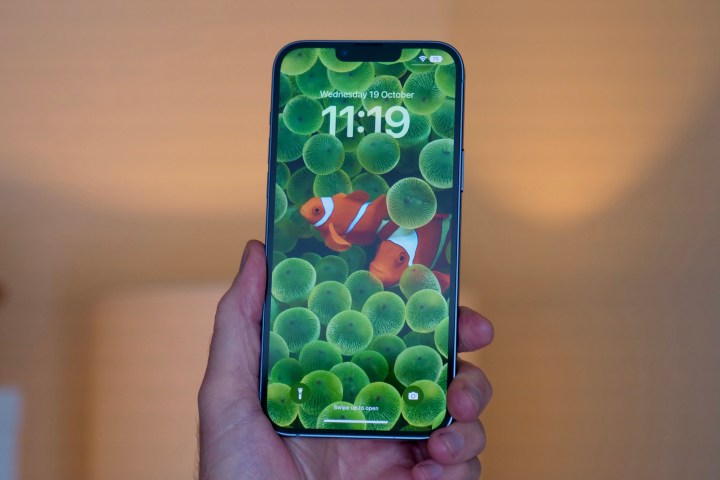
Put the iPhone 14 Plus alongside the iPhone 14 Pro watching a 2160p YouTube video, and you’d expect to see some differences, but the truth is you can’t. It has basically the same panel with a beautiful warm tone, wonderful blacks, and deep contrast levels. Both get seriously bright, but the 14 Plus lacks the boost to a higher brightness in sunlight. It’s not something that kicks in all the time, but when it does work, it’s a major advantage.
If the video quality hasn’t changed, then what has? The main difference between the screens on the iPhone 14 and 14 Plus and the more expensive Pro models is the refresh rate. The iPhone 14 Plus does not have Apple’s 120Hz ProMotion technology, and instead has a 60Hz refresh rate. This was a deal breaker for the recent iPad Air 5, which suffered considerably when placed alongside the iPad Pro with ProMotion, but on the smaller screen, it’s less of a problem than I expected it to be.
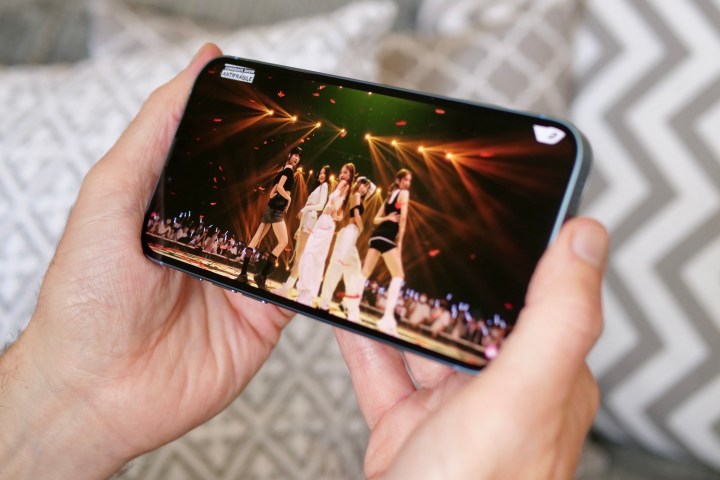
No, it’s not quite as smooth, and the frames between animations are slightly more obvious on the iPhone 14 Plus, but it’s not so jarring that the phone was uncomfortable to use, or that I felt a dramatic increase in eye fatigue. ProMotion remains a reason to buy the iPhone 14 Pro or iPhone 14 Pro Max, but it certainly isn’t a reason not to choose the iPhone 14 Plus.
Video and games are great on the iPhone 14 Pro, and while a lot of that is due to the large, bright screen and its excellent viewing angles, the speakers are also fantastic. They bring life to games and emotion to video, and are far superior to speakers you get on most other smartphones almost regardless of the price. The iPhone 14 Plus is an excellent multimedia smartphone.
iPhone 14 Plus camera
The iPhone 14 Plus shares the same 12-megapixel main camera and 12MP wide-angle camera system as the iPhone 14, while on the front is another 12MP camera for selfies. The main and selfie cameras have been upgraded over the ones fitted to the iPhone 13, with larger apertures and, for the selfie camera, autofocus too. The wide-angle sensor is the same one as you got on the iPhone 13.
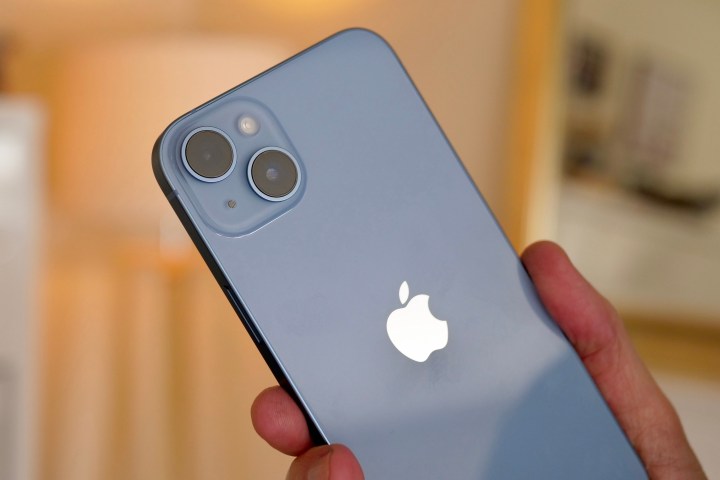
I trust the iPhone 14 Plus’ camera. There’s a pleasing consistency between the main and wide-angle cameras, the natural color balance is lovely, and there’s always plenty of detail when shooting in the daytime. Yes, the camera can overexpose in its quest to brighten scenes, but it’s not distracting until you put examples alongside cameras that don’t have this tendency — something we discovered in our Pixel 7-versus-iPhone 14 camera comparison.
The iPhone’s camera app is fast and feature-packed too, with video at up to 4K resolution and 60 frames per second (fps), plus excellent optical image stabilization when using the main camera. Video is smooth and jitter-free during the day, and the stereo audio recorded is sharp and clear. The iPhone 14 Plus is great for taking video.
The cameras are decent in lowlight, but they really need some light. When ambient light is low, the detail quickly disappears and the iPhone is easily outperformed by the Pixel 7. The selfie camera is also great during the day — I love the skin tones it reproduces and the overall color accuracy — but when light is scarce, it’s less effective, with photos becoming grainy and unattractive.
The camera on the iPhone 14 Plus is a safe choice. It reliably takes strong photos during the day, and good photos when the light starts to disappear. If you want to take photos when it’s really dark, and want to avoid the iPhone’s overexposure, then the Pixel 7 is a better choice. If you prefer a more saturated look and value selfies, the Galaxy Z Flip 4 is a great alternative, and I really like Samsung’s filters and editing suite too. It’s one of the few to challenge the iOS camera software.
You can see the difference between the iPhone 14 and iPhone 14 Pro’s camera in this test, which also applies to the iPhone 14 Plus.
iPhone 14 Plus software and performance
Apple has only put its latest A16 Bionic processor into the iPhone 14 Pro and Pro Max, while the iPhone 14 Plus (like the iPhone 14) has a slightly updated version of the A15 Bionic processor. It has gained an additional core for the Graphics Processing Unit (GPU), but is otherwise the same as the one used in the iPhone 13 series.
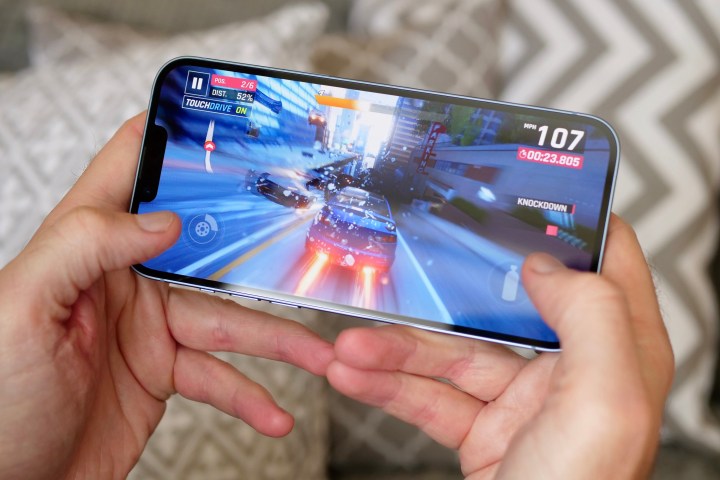
A processor that’s a year old in a brand new phone? Terrible, right? Not really. The iPhone 14 Plus runs smoothly all the time, has all the speed you could want even when playing games — Asphalt 9: Legends plays superbly — and combined with iOS 16. it’s as easy to use as it is to set up when you first open the box. My iPhone 14 Plus mirrors my iPhone 14 Pro, and after a few prompts, I left the phones next to each other and everything was complete after an hour. Picking it up and using it is no different from my “old” phone, and that’s a massive advantage of continued iPhone ownership.
The other aspect that makes it easy to own is how it connects and interacts with other Apple devices, whether it’s automatically opening the keyboard to make entering passwords on Apple TV easier, or the fast, reliable long-distance Bluetooth connection with my AirPods Max. It’s wonderfully hassle-free. It’s an almost perfect example of how I want my technology to be: Powerful, versatile, and convenient. The iPhone 14 Plus is all three of these things.
Apple also fully supports its smartphones with new software for years, and while it doesn’t officially give a time frame, you can expect new versions to arrive on the iPhone 14 Plus for up to the next five years. Longevity is a huge deal, as it keeps your phone secure and fresh with new features. Only Google and Samsung come close to matching Apple’s update plan, although the timelines are never as clear.
I go into detail about iOS 16 in my iPhone 14 Pro review, as does Mobile Editor Joe Maring in his iPhone 14 review, so take a look at those two reviews for more on how iOS is to live with on a daily basis. We’ve also got more on the operating system and its features in this article.
All the meaningful extras you get with the iPhone 14 Plus
All of the features and specs we’ve talked about could be considered standard, as they are represented across all smartphones, in one way or another. What’s enjoyable about iPhone ownership are the little extras that all work well, and never feel like gimmicks or dubious non-features you’ll never use. Apple Pay is accepted pretty much everywhere and has never let me down. Spatial Audio is really cool when you hear it for the first time and soon becomes part of the listening experience, to the point where you notice it’s not there when listening on non-Apple devices.
Although I don’t use it regularly, FaceTime is an excellent video chat service if your friends also own an iPhone. Face ID works in most lighting conditions and opens the phone to the home screen promptly. You get MagSafe charging, which is well supported by third-party accessory makers. And — best of all — you can use an Apple Watch with your iPhone 14 Plus. The pairing of an iPhone and an Apple Watch is the best phone/smartwatch combination currently available, and a recommended addition to your new iPhone. It’s something I can’t say about any other brand, although a Samsung Galaxy phone and Galaxy Watch do come close.
The iPhone 14 Plus is as accomplished as you’d expect a brand new smartphone to be.
The App Store is a professionally curated, expansive application store, while Apple Music and Podcasts apps are simple to manage and provide all the audio you could want without any hassle. New for 2022 is crash detection, where the phone recognizes the signs of a bad car accident and can call emergency services. Plus there’s an Emergency SOS feature that uses satellite communication to call for help if you’re stuck somewhere without connectivity.
The iPhone 14 Plus is as accomplished as you’d expect a brand new smartphone to be, and the ownership experience makes it easy to recommend. Just remember that once you’re inside Apple’s world, it’s quite hard to leave it behind.
iPhone 14 Plus battery and charging
The amount of time I’ve used the iPhone 14 Plus’s battery so far would normally give me a great idea of how long it’s going to last under regular conditions, but it’s proving to be an excellent performer and I want to be sure of its true ability. To give you an idea of what to expect so far, the iPhone 14 Plus easily makes it through two days use before it dips below 10%, which is a great sign that with more careful use it could stretch into three days.
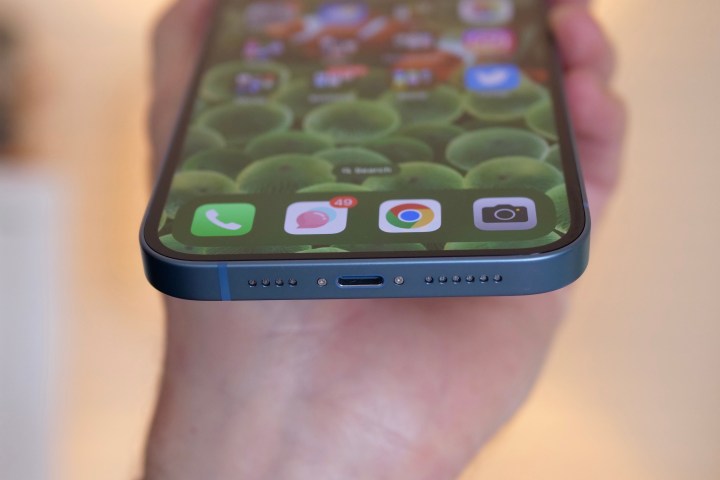
However, what intrigues me is that even with hard use, it has no issues reaching the end of day two. For example, playing Asphalt 9: Legends for 30 minutes with the screen at maximum brightness took a mere 3% of the available battery power. 3%! On the vast majority of Android phones, I expect playing the same game for the same amount of time to rob at least 10% of the battery. There’s no evidence of performance slowdown and the phone doesn’t even start to get hot, suggesting the upgrades to the GPU have worked wonders for efficiency.
At the moment, the iPhone 14 Plus’ battery is good enough for two days of use, and I believe this could be the case with at least 30 minutes gaming on both days and normal video, camera, and app use around it. That’s better than the iPhone 14, and it’s really looking like the main reason for recommending the 14 Plus over it.
Charging the battery is the same as with the iPhone 13, with a 20-watt maximum from a compatible charger, which will produce a 50% charge in 30 minutes. A full charge for me (using Apple’s 29W charger and a USB Type-C to Lightning adapter) takes about 85 minutes. There’s also MagSafe wireless charging at 15W and Qi wireless charging at 7.5W. It’s perfectly acceptable and similar to what Google and Samsung offer, but not as fast as the OnePlus 10 Pro or OnePlus 10T.
I’ll continue using the iPhone 14 Plus normally and update the review soon with our final verdict on the battery, but at this stage, it’s the top reason to buy this phone over the smaller model.
Coming back to the iPhone 14 Plus after 2 months
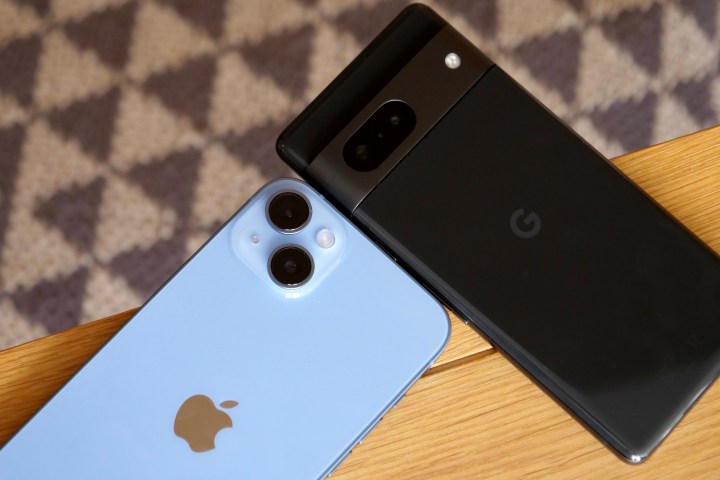
The iPhone 14 Plus continues to be a great iPhone, but not an iPhone I want to use very often. I prefer the 120Hz ProMotion screen on the iPhone 14 Pro, and dislike the hand-stretching size of the Plus and Pro Max iPhone 14 models, so I really have to force myself to use it. Digital Trends’ Mobile Staff Writer Christine Romero-Chan perfectly described it as “oddly out of place” when she placed it on her five worst iPhones of all time list, an ignominious honor that’s depressingly fitting.
There is some good news, in that as a very recent iPhone, it has received the latest iOS 16.2 software. This means you get all the modern iPhone goodies. That’s not to mention that I still don’t notice any real difference between the A16 Bionic chip in my iPhone 14 Pro and the A15 Bionic in the iPhone 14 Plus. But I can’t see why you would buy it over the iPhone 14, or not opt to pay a little more and get the far better iPhone 14 Pro or Pro Max.
We’re a long way from the iPhone 15, but if you have an iPhone 13 or even an iPhone 12 in your hand now, there’s little reason to upgrade to the iPhone 14, and even fewer reasons to choose the iPhone 14 Plus. It’s not that it’s a bad phone, it just doesn’t fit in.
iPhone 14 Plus price and availability
The iPhone 14 Plus starts at $899 for the 128GB model, $999 if you want 256GB of storage space, or $1,199 for the largest 512GB of storage space. In the U.K., the iPhone 14 Plus costs 949 British pounds for the 128GB, 1,059 pounds for the 256GB, and 1,279 pounds for the 512GB model. When choosing, remember the iPhone does not come with space for a MicroSD card, so to expand the storage, you’ll have to purchase Apple’s iCloud storage space, or delete apps and media if you run out of space.
The 6.1-inch iPhone 14 starts at $799 and the 6.1-inch iPhone 14 Pro starts at $999, and both are very strong competitors to the iPhone 14 Plus, which sits quite awkwardly between them. If you want a 6.7-inch iPhone 14 Pro Max, it starts at $1,099. It’s a big jump, but it’s a big phone and is really the best of all worlds, providing the big screen of the 14 Plus and all the extra tech in the 14 Pro.
If you’re not settled on an Apple phone and want to see what Android offers, I recommend taking a look at the Samsung Galaxy Z Flip 4. It’s totally unlike the iPhone 14 Plus in terms of design (it folds!) and is incredibly convenient. The software is Samsung’s best yet and the camera held its own against the iPhone 14 Pro. If you’re going to do something different, you may as well make it really different.
Apple didn’t make an iPhone 13 Plus, so there’s no clear upgrade path, but I can see the iPhone 14 Plus being a better upgrade from the iPhone 13 than it would be getting the iPhone 14. You get a bigger screen and the longer-lasting battery, plus the other smaller changes. If you’re really desperate to upgrade, this may be the way to go.
Only one compelling reason to buy the Plus version
The iPhone 14 Plus is brilliant, but suffers from feeling like range filler. On either side of it are two other brilliant smartphones that do most of the same things for less money, or a lot more for a small extra amount. There is only one aspect to truly recommend the iPhone 14 Plus over the iPhone 14, and it’s not the screen — it’s the battery. It may end up making the iPhone 14 Plus the battery superstar of the latest range of iPhone models.

To recap, it’s more expensive than the iPhone 14, yet the camera is the same. The software and all the excellent added benefits are also the same, as is the case with the design, materials used, durability, and build quality. The bigger screen (which has the same performance) and longer battery life come at the cost of convenience, as the Plus is bigger and heavier than the iPhone 14.
It’s really hard not to recommend just spending another $100 to get the iPhone 14 Pro. It has the 120Hz ProMotion refresh rate, a more versatile camera, the new A16 Bionic processor, and a stainless steel chassis. No, the screen isn’t quite so big, but it’s hardly tiny. It’s also brighter, plus it has the Dynamic Island and an always-on feature. The benefits that come with the Pro outweigh the Plus’ 0.5-inch extra screen, but the battery certainly won’t last quite so long.
There could be a good reason why the Plus name and design hasn’t been around for a few years: It’s because it occupies that awkward middle ground, with the phones around it in the range being more sensible buys. There’s already evidence that the resurrected Plus model hasn’t been a sales winner, with reports indicating Apple has scaled back production of it already, just weeks after its release. It’s a great phone, but you’ve got to really want the bigger screen and longer battery life to consider it worth buying over the other iPhone 14 models.














